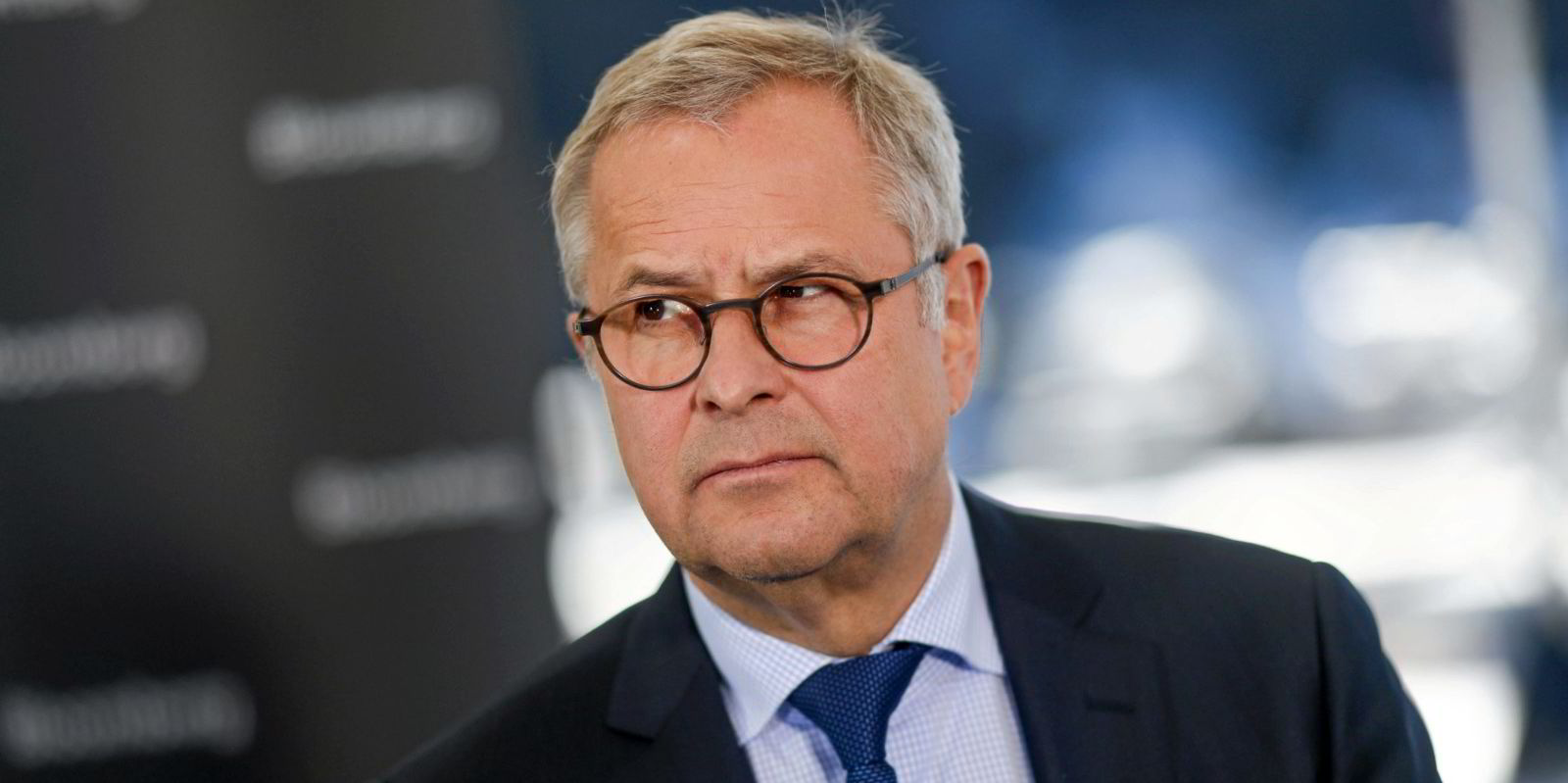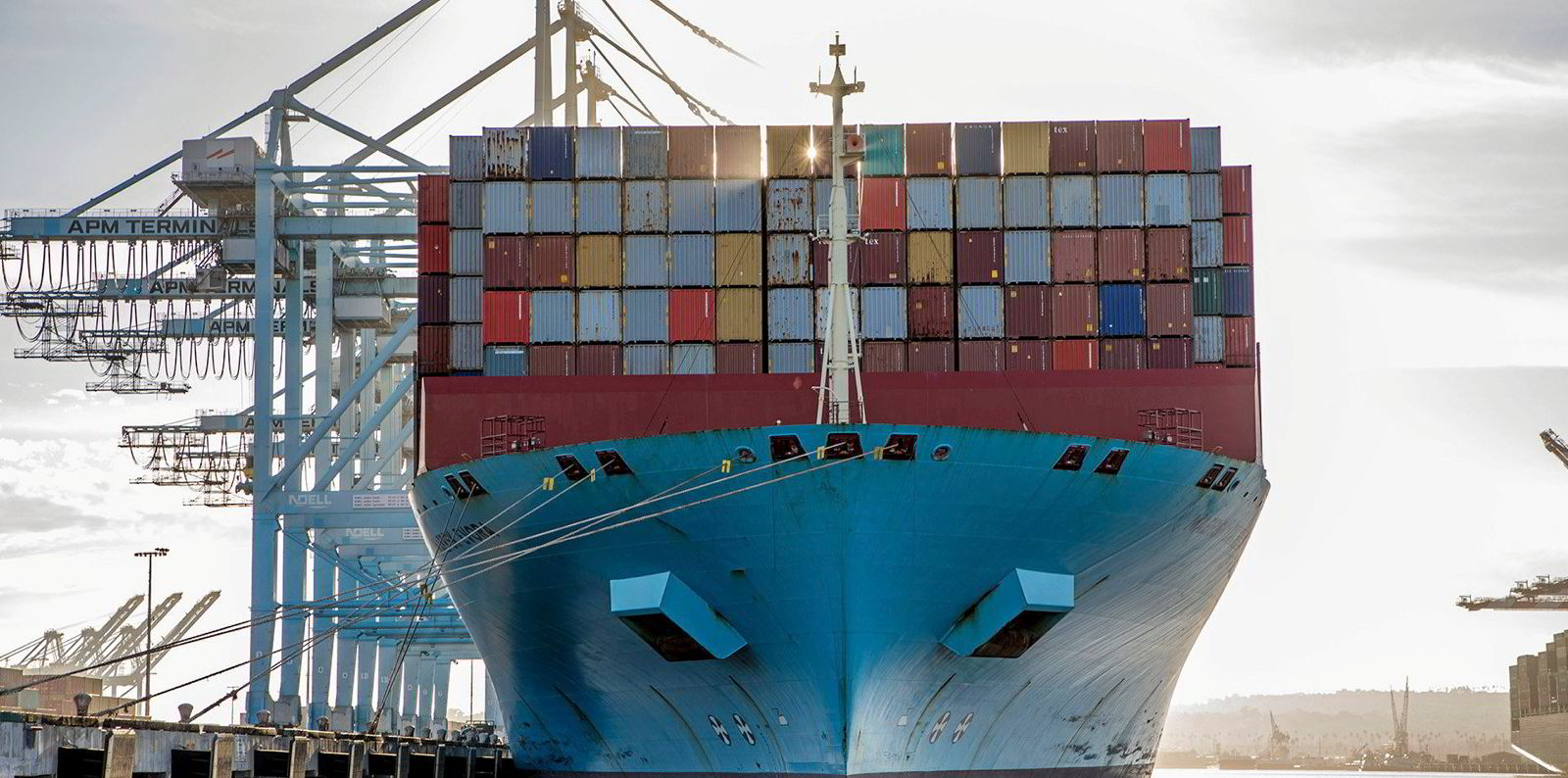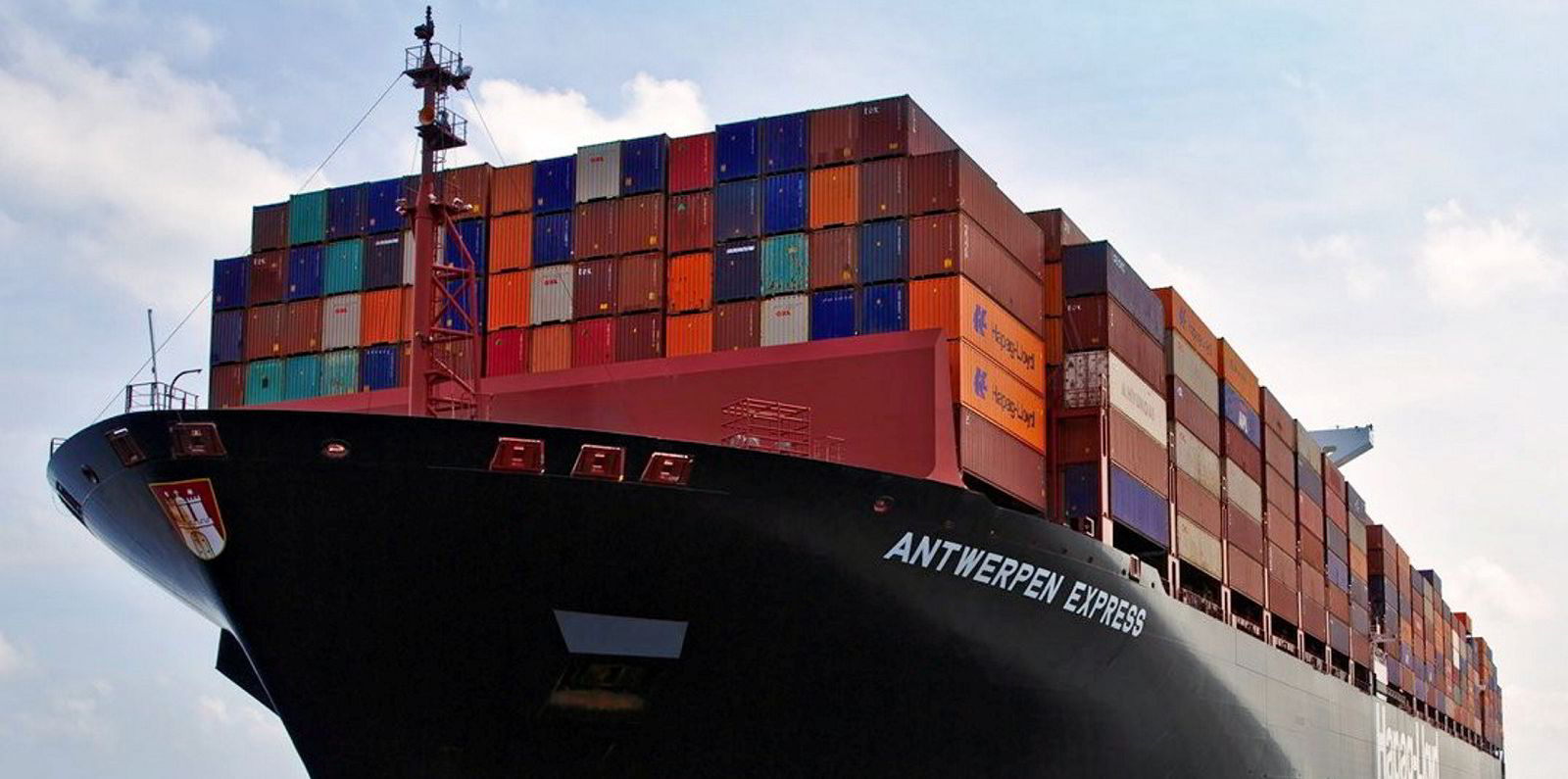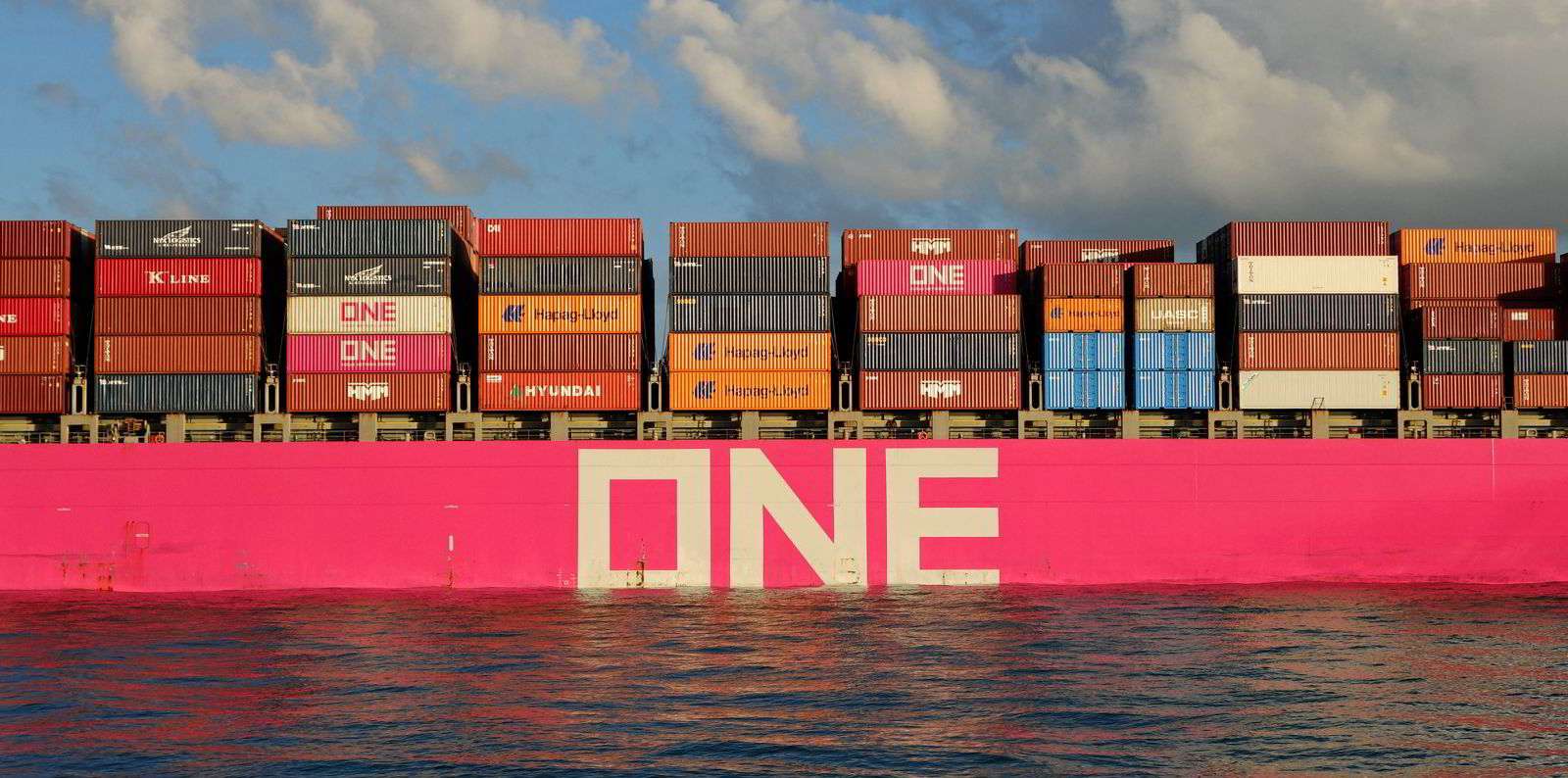AP-Moller Maersk will purchase $500m more of its own shares annually as it continues to log record results.
The Danish liner giant company will increase the current share buyback programme from $2.5bn to $3bn for the years 2022-2025.
The plan was unveiled as the company logged another record quarter but warned that container demand forecast could be negative.
Revenues increased by 52% in the second quarter and earnings more than doubled compared to the same quarter last year.
Revenue grew to $31.7bn in the second quarter, and Ebitda increased to $10.3bn.
The net result came in at $8.6bn and $15.4bn for the first half of the year.
That was logged on the back of strong contract rates and growth in its logistics division.
“We delivered an exceptionally strong result for the second quarter and consequently recorded the 15th quarter in a row with year-on-year earnings improvements,” chief executive Soren Skou said.
Shrinking demand
Maersk yesterday unveiled a massive profit upgrade with underlying Ebitda to be about $37bn for the full year, up from $30bn.
On that upgrade, Maersk will increase the current share buyback programme, despite how a worsening political and economic outlook will impact on container demand.
Global demand for logistics services continued to moderate across supply chains in the second quarter, the company said.
The company now expects container growth to be at the lower end of its forecast range of between -1% and 1%.
Freight rates softened marginally over the quarter but remained at a high level historically as supply chain congestion increased across the globe.
Global container volume declined by 2.3% in the second quarter compared to the previous year.
“Volumes in Ocean were softer as congestion continued and the war in Ukraine weighed on consumer confidence, particularly in Europe,” Skou said.
Geopolitical uncertainty and higher inflation via higher energy prices continued to weigh on consumer sentiment and growth expectations.
Contract boost
Spot rates have softened from their peak earlier in the year, but the company continued to sign contracts at rates above previous year levels given strong demand and continuing global supply chain congestion.
That contributed to the positive result, along with rapid profitable growth in logistics and continued solid performance in terminals, Skou said.
“The result was driven by strong contract rates in Ocean, rapid profitable growth in Logistics and continued solid performance in Terminals,” Skou said.
He attributed the results to exceptional market conditions and sustained momentum from the strategic transformation focused on integrated logistics.
In ocean, revenue grew to $17.4bn and Ebit increased to $8.5bn over the second quarter.
Higher freight rates were partly offset by 7.4% lower volumes and by higher fuel, handling and network costs.
For the quarter, revenue in logistics grew 61% to $3.5bn, mainly due to higher volumes from new customer wins and increased spending from existing customers.
In terminals, revenue grew to $1.1bn, mainly driven by strong import demand in the US and above-market growth in Asia as well as higher storage income, which was, however, partly offset by higher costs.







